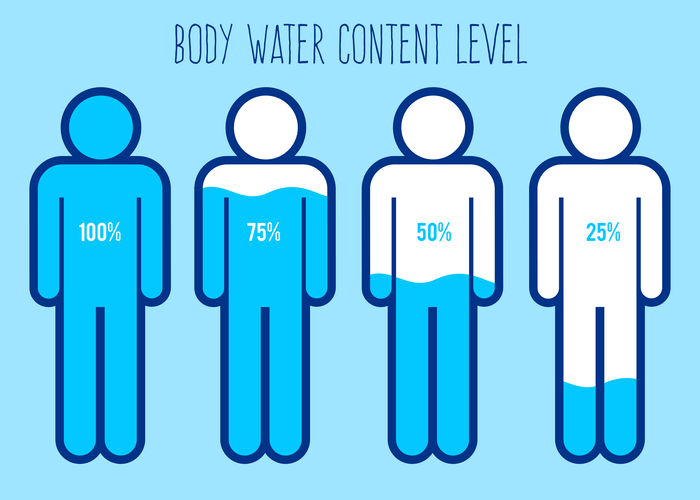The dangers of “social drinking” and how it can lead to alcoholism are real, yet manageable with mindful practices. The shift from social drinking to alcoholism often goes unnoticed until it’s too late. Subtle signs such as increased frequency of drinking, reliance on alcohol for relaxation, or using alcohol as a way to cope with emotions can indicate a transition to problem drinking. Recognizing these signs early is crucial in preventing further escalation.
Personalized Mental Health & Addiction Care in Florida
Seeking help for alcoholism is a brave and crucial step towards a healthier, more fulfilling life. Our dedicated team offers compassionate support, ensuring you have the guidance and resources needed to navigate your journey to sobriety and wellness. Being a responsible social drinker revolves around awareness of our personal boundaries and making informed decisions that place our well-being at the helm. Over https://ecosoberhouse.com/ time, this higher tolerance often leads to a person drinking larger quantities.
Alcohol Withdrawal Symptoms: Detox, Timeline & Treatment
The key to social drinking is to drink responsibly while still having fun. Treatment for alcoholism should involve medical care to help with the physical symptoms of withdrawal, such as vomiting or shaking. While drinking socially in moderation may bring a sense of relaxation and enjoyment, overconsumption of alcohol has been linked to numerous health risks, both short-term and long-term.
Injecting Drugs: Health Risks and Social Consequences

What started as a sporadic happy hour gathering with friends has snowballed into drinking every weekend, at every event or even alone. If you find yourself drinking more than intended or needing more alcohol to feel the same effect, this could be a sign of increased tolerance – an early indicator of alcohol dependence. For problem drinkers, alcohol may become a crutch or a way to escape from the challenges they face.
World Mental Health Day: Breaking Stigma and Supporting Recovery in Asheville, NC
- The Global Information System on Alcohol and Health (GISAH) is a tool used to monitor alcohol consumption and policy responses.
- Being a responsible social drinker revolves around awareness of our personal boundaries and making informed decisions that place our well-being at the helm.
- Alcoholism, also referred to as alcohol use disorder (AUD), is a chronic condition that is characterized by the inability to stop or control alcohol consumption despite negative consequences.
- Like one drink per day for women and up to two drinks per day for men as moderate drinking.
- You explore how to relax your breath, mind, and body even when you feel pressure.
While genetics and environment can play a role in the development what is Oxford House of an alcohol use disorder (AUD), individuals can take steps to reduce their risk of developing alcoholism. Some individuals who go through a single stage of heavy drinking grow out of it on their own and don’t develop a physical dependency. For a social drinker, it is about companionship, having a fun evening out, or a chance to relieve some stress. There is a particular element of enjoying the drinks you choose, and it’s more often about celebrating life with people you want than trying to forget your troubles.

Alcohol is available everywhere, from bars and restaurants to people’s homes. It’s a popular way to socialize, relax and even celebrate special occasions. Occasionally drinking alcohol or even drinking a few times a week is considered normal and harmless. This ingrained cultural attitude remains mostly unchallenged in our society. Because of this, there’s no clarity about when social drinking becomes a problem.
Conversely, alcoholism is a progressive disease in which someone has extreme difficulty not drinking. It’s a serious condition where you feel an uncontrollable need to drink. Well, if drinking starts affecting your daily life, health, and relationships, it might be crossing a line. While social drinking is often viewed as a harmless activity, it carries potential health risks social drinking problem and negative consequences that can impact individuals and society. The National Institute on Alcohol Abuse and Alcoholism highlights that heavy drinking can lead to serious health issues such as liver inflammation, pancreatitis, and increased cancer risks. The brain is also affected, with alcohol interfering with communication pathways, potentially altering brain structure and function.
Ready To Join Our Big And Happy Family?
- So, what started out as drinking occasionally can turn into excessive drinking.
- Tara Healthcare LLC is a technology platform which connects patients to licensed providers in the state in which they live.
- According to the CDC, moderate drinking is defined as being no more than two drinks a day for men and one for women.
- The rise of the ‘sober curious’ movement, as reported by Harvard Public Health, reflects a cultural shift towards mindful drinking and the exploration of non-alcoholic beverages.
Social alcoholic drinking involves moderate and controlled alcohol consumption during social occasions without severe negative consequences. Alcoholism, on the other hand, is a chronic condition marked by uncontrolled drinking, cravings, physical dependence, and significant life disruptions. Due to its harmful and compulsive nature, alcoholism necessitates professional intervention and support for recovery.
While the effects of alcohol consumption can vary depending on the individual’s age, gender, and genetics, excessive drinking can have serious consequences. Through this extensive exploration, we hope to foster a deeper understanding of the varying degrees of alcohol consumption and the effects they can have. So, what started out as drinking occasionally can turn into excessive drinking. Yes, we may have consumed alcohol only in social settings, but the amount we consumed can be an issue. Social drinking is the practice of consuming alcoholic beverages in moderation, as part of a social gathering or event.
From celebratory toasts at weddings to casual happy hours with colleagues, drinking can be seen as a normal part of social life. However, there’s a fine line between social drinking and problematic alcohol use. These addiction treatment programs are designed to provide relief and recovery for those struggling with substance abuse or co-occurring disorders.
Understanding where one stands can be the first step toward addressing potential issues. Social drinkers, also known as moderate drinkers, consume alcohol occasionally and primarily in social settings. They usually don’t drink to get intoxicated and have control over their alcohol intake. If you can control and stop your drinking, and alcohol is not causing any negative consequences, moderate drinking is considered a part of a healthy lifestyle. Seeking help for alcohol addiction is a crucial step toward a healthier life. Drinking socially might seem harmless, but when it becomes frequent or leads to risky behavior, it’s time to take action.


